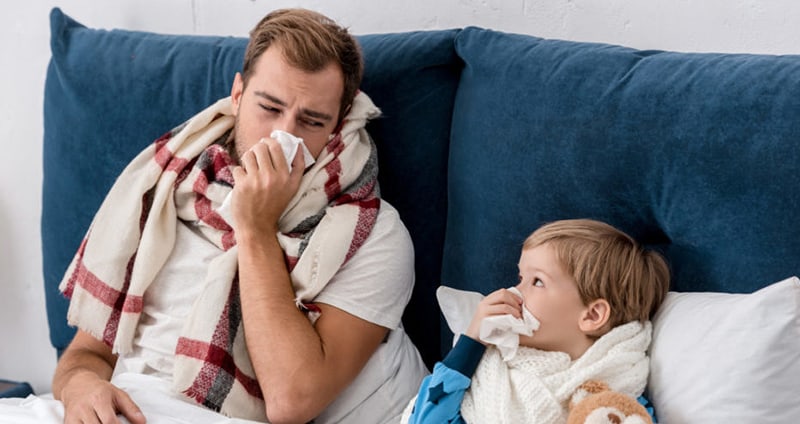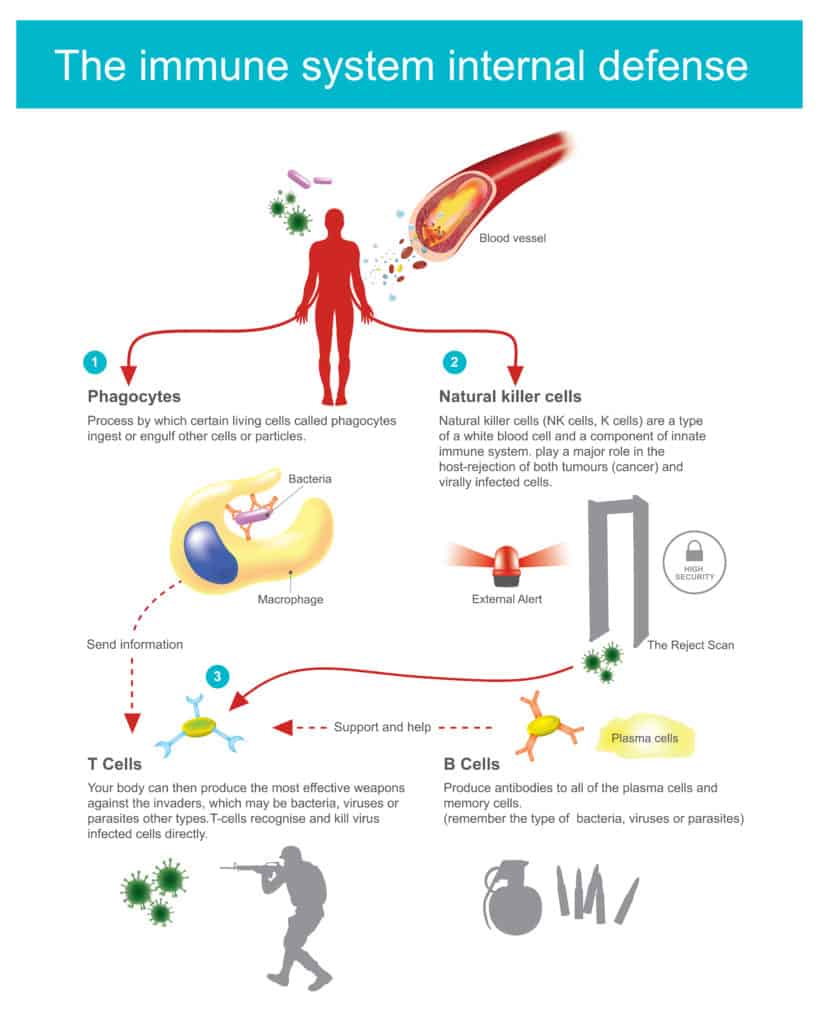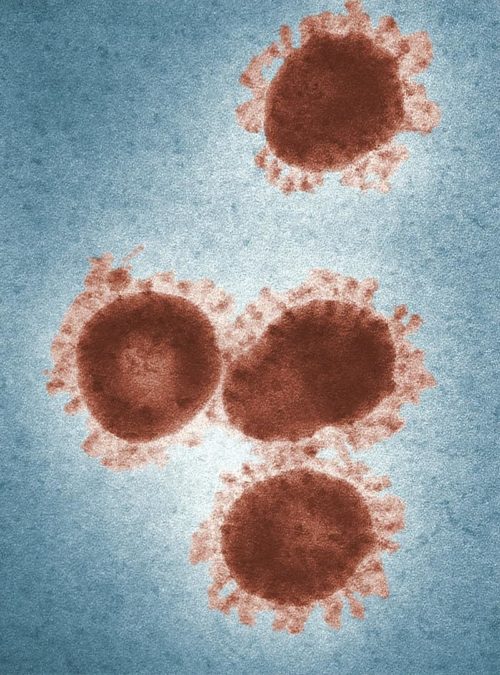Menu


We’re all seeking an extra boost to protect us from colds and flu. Like many others, you may have tried various natural dietary supplements to give you the upper hand over contagious infections. But few mushroom supplements, vitamins, or foods manage to reliably shorten the duration of an infection (or avoid it altogether).
Yet, there's one edible mushroom—that predates all other life forms on land and has evolved to be a master of survival—that has a matrix of compounds sophisticated enough to comprehensively support our immune system vitals: fungi and, in this case, certain mushrooms.
A strong and healthy immune system is a fundamental building block of good health regardless of the time of year. It regulates essential functions, including mood and mental health, the gastrointestinal system, and vitality.

For thousands of years, mushroom extracts from functional mushrooms such as shiitake mushrooms, reishi mushrooms, and turkey tail mushrooms have been used across cultures to help boost the immune defense to fight off colds and flu. In particular, traditional Chinese medicine practitioners have long known the health-promoting effects and health benefits of edible mushroom. Finally, scientific research in the West is catching up.
As a result, mushroom supplements are receiving more mainstream attention as complementary therapies for boosting immune defense.
It's important to understand that different bodily immune responses to illness come from the innate and adaptive immune systems.
The innate immune defense is our first line of protection against infection. Its initial defense includes outer protection from pathogens through our skin, cilia, mucous membranes, and gut.[1]
When a virus passes this outer protection, our innate immune defense system works with its second line of defense. This is done by moving inflammatory cells to the site of infection or activating defense cells already there.
Soluble protein substances of the complement system move into action and help defend the body.[1] This leads to an inflammatory reaction, where blood circulation increases, which can cause a fever. When we think of the innate immune response, we must recognize these defenses' beneficial effects.
When we think of the response our body generates to a foreign invader like the flu, we immediately think of the fever, chills, cough, and other respiratory or sinus symptoms that happen. These responses are all active displays of the body's innate immune defense system at work in an acute situation.
The body musters all of its innate immune response mechanisms to fight off infections and return to its healthy baseline.

If your innate immune defense system can’t fight off the infection, that’s when the adaptive immune system kicks in.
This system takes longer to activate (four to seven days after exposure to a pathogen) when the body is trying to fight an infection. However, when needed, the adaptive immune defense system can provide a more targeted, precise response. Both the innate and adaptive systems often work together.
The adaptive immune system has several parts that react in different ways, depending on the place in the body where the infection is. For example, the adaptive immune defense system makes antibodies to destroy pathogens outside the cells circulating in the blood and body fluids.[1]
The body creates a cell-mediated response to eliminate pathogens inside the tissue. These parts of the adaptive defense include T lymphocytes, B lymphocytes, antibodies as soluble proteins in the blood, and cytokines in the blood and tissue.
Maitake (Grifola frondosa), Reishi mushroom (Ganoderma lucidum), Lion's Mane mushroom (Hericium erinaceus), and Cordyceps extract can also assist the immune system in dealing with foreign invaders by increasing the activity of multiple immune defense system cells.
It’s your adaptive immune system where defense to specific infections develops. The cells can “remember” invaders they’ve already had contact with, and the defense response can then be quicker with each successive exposure.[1] This is why you only get sick with a certain virus strain and subtype of Influenza A once, and you’re immune to it.
Most vaccinations work similarly by introducing a version of a pathogen to the body so that T cells and antibodies develop, along with memory cells. When and if this pathogen is encountered daily, the body already has natural defenses against it, and your immune defense system can quickly eliminate it.

Functional mushrooms can help your body’s immune defense by strengthening and supporting its natural defense processes.
It’s well established that functional mushrooms are effective immune defense system modulators and immune cell activators. These fungi directly impact your body’s production and use of Natural Killer cells, T cells, B cells, antibodies, macrophages, and cytokines.[2]
For example, the functional compounds of certain mushroom varieties are known to modify cytokines, which are both pro and anti-inflammatory messengers secreted by immune cells. Certain cytokines can suppress white blood cells and make you more susceptible to getting sick. However, mushrooms can help reduce the inflammatory response caused by cytokines and allow T cells, B cells, and antibodies to work more effectively.[3,14]
There are many studies showing that mushrooms can stimulate or suppress different anti-inflammatory and pro-inflammatory cytokines.[4] Immunomodulation is the ability of the body’s immune defense system to respond intelligently to any biological circumstances in the body:
“Mushrooms can increase inflammatory cytokines in the start of an infection (which is what you need actually to fight off a virus naturally) but then are extremely anti-inflammatory in the second half. Herbs and mushrooms are immune modulators, meaning they can adjust how they are affecting the body based on need in the moment."
Scientific evidence (in vitro) also suggests that active compounds in mushrooms may play a role in influenza viral modulation by inhibiting the enzymes viruses use for replication. This mechanism is the basis for most antiviral drugs.[15,16]
One of our Real Mushrooms Traditional Chinese Medicine practitioners put it this way: Functional mushrooms are powerful because they regulate, not just stimulate, the immune defense system.
Mushrooms are rich in bioactive compounds called polysaccharides, including beta-glucans, which act as biological response modifiers. The innate immune defense system cells found in the gut area, called the M cells in the peyer’s patches, express receptors such as dectin-1, TLR3 and CR3.[5]
Here in the gut-associated lymphatic tissue (GALT), the beta-glucans and metabolites bind to pattern-recognition receptors (PRR) on key immune cells like macrophages and dendritic cells. Beta-glucans are recognized by the immune defense system as “non-self molecules,” acting as pathogen-associated molecular patterns (PAMPs), which stimulate innate and adaptive immune responses.[17]
Well-researched mushroom varieties that can help boost the innate and adaptive immune systems include Reishi, Turkey Tail, Chaga, Shiitake, Cordyceps, and Maitake (Grifola frondosa). Consume these fungi as part of a healthy, well-balanced diet or through a high-quality mushroom supplement that is free from added fillers and other by-products from the growing process.

There is scientific evidence to support using functional mushrooms to strengthen your immune defense system. However, you’re more likely to achieve a better result by taking a holistic approach to your overall health and wellness. This includes addressing other parts of your lifestyle, like diet, regular exercise, and sleep.
Proper nutrition and digestion are crucial in giving your body the right fuel to fight off infection. Over 70% of your immune system by weight occurs in your gastrointestinal system, including your stomach and small and large intestines. Your body produces antibodies T and B lymphocytes that keep you balanced and healthy.[6] Functional mushrooms also support short-chain fatty acids, fuel for the cells in your gut.[18]
A whole-foods-based diet that includes complex carbohydrates, fresh fruits and vegetables, meat and fish, and healthy fats can provide the nutrients needed to support your health.
Consider that mushrooms, whether eaten as food or taken as a dietary supplement, are a form of prebiotic fiber, meaning they fuel healthy gut bacteria.[7] Prebiotics work in concert with probiotics and create an optimal environment for healthy bacteria to flourish.[8]
Prebiotic foods that you can incorporate into your diet include:[9]
Excellent sources of gut-friendly probiotics include:[10]
These foods, along with plenty of fresh vegetables and fruit, whole grains, meat, and seafood, and healthy fats like extra virgin olive oil, will go a long way towards enhancing your immunity.

While eating right and ensuring you get the right nutrients go a long way toward healthy immune function, proper sleep is essential to fighting infections. Sleep deprivation harms immunity by interfering with key hormone actions.
A lack of sleep can slow your body’s response to foreign invaders and interfere with its ability to mount a strong reaction to pathogens.[11] This means that you may be sicker for a more extended time.
Aim for at least 7-8 hours of sleep each night for optimal health benefits.
Building a strong immune defense is an integral part of maintaining good health. With the strategies outlined and the beneficial effects here, you can give your body the tools to fight infections and bounce back quicker when you get sick.
By understanding the role that functional mushrooms can play in boosting your immunity, you can make more informed choices about your food and supplements and take advantage of their health benefits. Functional mushroom benefits for general health and immune function are well-established and supported by considerable scientific evidence and thousands of years of practice in Eastern medicine.Visit our online store to explore our complete line of mushroom supplements, which can help support your immune system and may increase energy, resilience, and wellness.
Disclaimer: The information or products mentioned in this article are provided as information resources only, and are not to be used or relied on to diagnose, treat, cure, or prevent any disease. This information does not create any patient-doctor relationship, and should not be used as a substitute for professional diagnosis and treatment. The information is intended for health care professionals only. The statements made in this article have not been evaluated by the Food and Drug Administration. Any products mentioned are not intended to diagnose, treat, cure, or prevent any disease. The information in this article is intended for educational purposes. The information is not intended to replace medical advice offered by licensed medical physicians. Please consult your doctor or health practitioner for any medical advice.